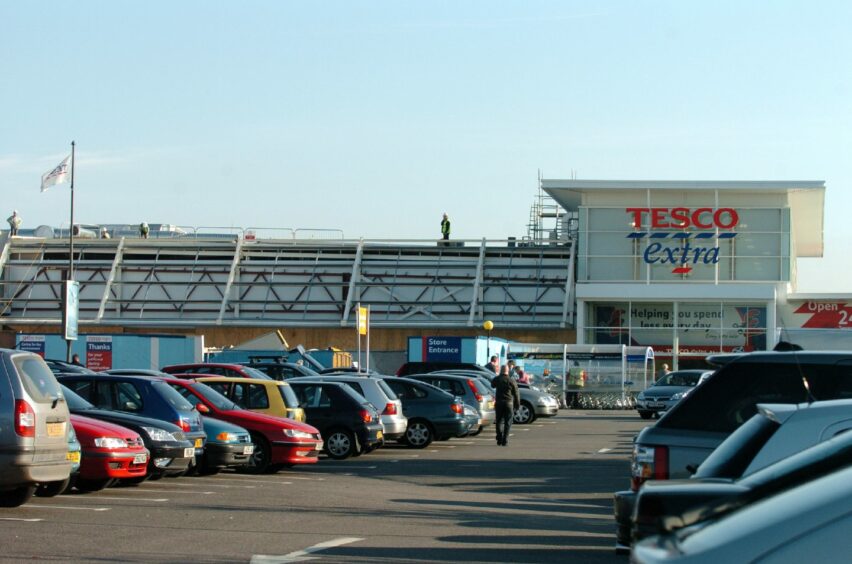Sir, – Ian Lakin (Letters, March 7) would appear to be somewhat confused. Unless he completely missed it Scotland has – by virtue of being a voluntary member of the UK – already been dragged out of the EU despite having voted against Brexit, as indeed Northern Ireland did.
However, immediately on gaining independence Scotland will start the process of joining the EU or possibly EFTA. Time will tell how long that will take but the signs are encouraging.
However, whatever the length of time the wait will be worth far more economically and socially than staying in a UK with little prospect for future growth and where even the financial sector – the core of the Tory business culture – is decamping to Europe.
But Mr Lakin claims joining either the EU or EFTA would lead to what he calls a “hard border” and while he is broadly right in this, where he’s wrong is to try to imply this would automatically reduce current trade between Scotland and what’s left of the UK which, incidentally, may not actually include Northern Ireland for too much longer.
Trade will in fact continue as it has elsewhere and it will be up to the respective governments and the EU to make sure it’s as smooth as possible which is entirely feasible providing all parties behave sensibly.
But, as a newly independent Scotland emulates the Irish Republic’s model and establishes its own direct ferry routes to Europe, avoiding the need to transit through England, then the volume of traffic over the border with England will almost certainly decline.
As to Mr Lakin’s comment regarding Gavin McCrone’s recent publication After Brexit, I’m confident they’re both wrong by simply looking at the performance of similar size countries.
As was shown in an article in the Financial Times last year, the entire UK’s standard of living based on OECD data is already worse than Scotland’s peers such as Norway and Denmark, particularly when it comes to its poorest people.
Even Slovenia scores better which should tell us that when it comes to improving our economy, we’re starting from such a low level it’s difficult to see – once we join the EU or EFTA – that it could go any way other than up.
Important to remember here is that after decades of outrageously poor management of the overall UK economy by consecutive governments at Westminster, Scotland’s economy is only around 50% of Norway’s and roughly 60% of Denmark’s and, in both cases, considerably narrower.
It’s also important to consider other potential changes. I recently suggested (jokingly) to friends that the first thing Scotland should do on independence is to set up an Agency for Brexit Economic Refugees. I was thinking here of companies which, seeing the opportunity of frictionless trade with the EU, might simply move their businesses to Scotland.
Equally, we may get private individuals who decide moving here, where’s there’s a common language and familiar traditions, could be an attractive proposition. This may be especially important to families whose children might be considering studying in Europe under the Erasmus scheme.
Ridiculous? The more I think about it the more I think it’s entirely feasible. People will look north and see opportunities they’re denied now.
Add the potential of access to things like the Horizon R&D programme, the improvement in the availability of EU medical and other personnel as a result of opening the border with 27 countries, then – to coin a phrase – EU membership becomes a no-brainer.
It’s important for Mr Lakin to understand that those of us who support independence are actually fully aware of the risks – including sterlingisation which I personally oppose and don’t think is sustainable. However, we’re also fully aware of the opportunities and I personally concluded long ago that the upsides considerably outweighed the possible downsides.
I’m fed up with being poorer than Norway or Denmark and from a local NE Scotland standpoint, fed up with them making us look like also-rans when it comes to the important stuff that future generations will depend on such as developing so called net-zero technology manufacturing.
In short, I’d take the risk because the outcome will be worth it even though I know it will be very hard work.
Mr Lakin is simply wrong. Unionism is dead in the water because it doesn’t work and hasn’t worked for a long time.
An independent Scotland can do a lot better. In fact, given the UK’s recent economic track record I’m not sure that’s as big a challenge as we thought it once was.
Now I’m sure Mr Lakin will respond quoting how much we “export” to the rest of the UK compared to Europe. I look forward to that because I can also tell him why that’s a first-class reason as to why independence is so important.
Dick Winchester, Aberdeenshire.
‘Free press’ long way from truth
Sir, – Once again I find myself responding to your columnist Euan McColm.
In his latest composition he argues that claims from Scottish independence supporters that their chances of winning the 2014 independence referendum were thwarted by the mainstream media are just tired old “cliches” and “nonsense”.
He then states “a free press should treat with scepticism bold claims made by politicians, regardless of party”.
There is little doubt that the “free press” treated Alex Salmond’s claims that we could continue to use the pound (which we could), that there could continue to be frictionless trade between Scotland and the rest of UK, and there need be no hard border (both of which the recent Northern Ireland deal have proved could also have happened) with a lot more than scepticism.
Yet that same “free press” was barely heard when the Westminster Tories claimed that breaking free of the EU would allow us to “take back control” of our laws and our borders.
The SNP leadership hustings kicked off with an attack on media “lies”. Sturgeon’s successor shouldn’t indulge this paranoia. My @PJOpinion column: https://t.co/zq6dxIjprq
— euan mccolm (@euanmccolm) March 2, 2023
Even though, in reality the EU only controlled about 10-15% of our laws, and those were mostly to do with trade and free movement, and we always had the power to restrict immigration.
They also said being free from Europe would lead to us all being better off, even though a blind man could see that greater red tape would obviously lead to less trade and higher prices.
That same “free press” has been relatively quiet after claims of the better-funded NHS that would result from ditching the EU have proven to be misinformation at best, downright lies at worst.
I would run out of fingers and toes if I counted the amount of times the BBC alone misrepresented information from the Yes campaign.
On one occasion the lauded, “impartial” Nick Robinson cut an exchange during which Salmond had answered difficult questions so he could state: “Alex Salmond had no answers.”
So please, Mr McColm, stop with trying to portray the independence supporters as deluded in their beliefs while putting yourself and your fellow anti-SNP journalists forward as champions of impartiality and virtue – nothing could be further from the truth!
Douglas Black, Kingsford.
Independence cause is broad
Sir, – In response to George Emslie’s attack on pro-independence supporter Herbert Petrie (Letters, March 12), whose opinions he finds most offensive.
I think Mr Emslie really has lost the plot a bit.
Well I’ve got news for him – we live in a democracy in Scotland.
We are entitled to our views and free speech, however much you may disagree.
For the avoidance of any doubt, the independence movement isn’t the fiefdom or exclusive to any one political party in Scotland.
In fact there will be Labour, Green, Alba, SNP supporters of independence, as well as Scots not currently aligned with any political party, but supporting the cause of independence.
Given regular polls, more than half of Scots don’t want to be ruled by Westminster – just ask Gary Lineker what he thinks of the Westminster government.
People are making their stance against governance from Westminster that’s not only incompetent but downright mean.
Ken Reid, Banchory.
Thanks for the lift
May we express our thanks to the very kind gentleman who, seeing myself and my husband struggling with our shopping trolley and our carrier bags up the back stairs of Tesco Danestone, stopped to ask if we would like a lift in his car home.
He was obviously a workman on a job but took the time to help two senior citizens in their late 70s get home safely.
No thanks to First Bus who discontinued the No 8 which stopped outside Tesco, and left the elderly and infirm, and mothers with children, more or less stranded.
Thank you once again to the Good Samaritan.
SC.



Conversation